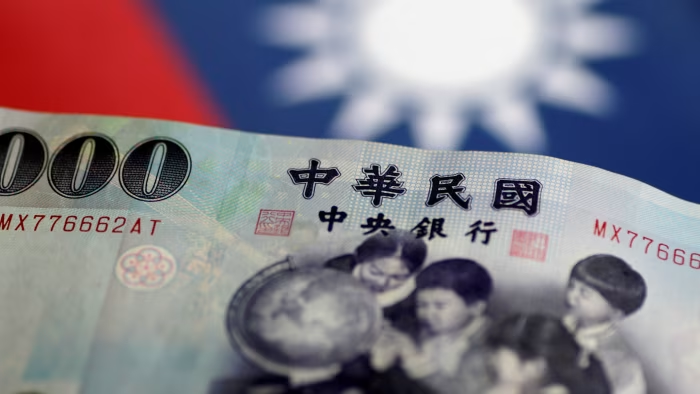Historic Surge in the Taiwan Dollar
The Taiwan dollar experienced its most significant one-day appreciation since the 1980s, marking a rare moment of currency strength that captured global financial headlines. Currency analysts attribute the gain to a mix of speculative flows and strategic positioning by regional governments, aiming to influence trade negotiations with the United States.
Trade Negotiations Drive Currency Movements
At the heart of the Taiwan dollar’s rise is renewed speculation around trade talks between the U.S. and key Asian economies. Observers suggest that some countries may be allowing their currencies to appreciate as a concession to Washington, which has long accused trading partners of manipulating exchange rates to maintain export advantages.
Policy Signals from Taiwan’s Central Bank
Although Taiwan’s central bank did not issue a direct statement on the currency movement, officials hinted that the appreciation was within acceptable bounds. The central bank’s silence is being interpreted as tacit approval of the currency’s strength, particularly as it aligns with the island’s broader diplomatic and economic strategy in the current geopolitical climate.
Impact on Taiwan’s Export Sector
While a stronger currency often puts pressure on exporters by making goods more expensive overseas, Taiwan’s high-tech sector—especially semiconductor manufacturers—remains resilient. Companies like TSMC, which hold pricing power due to their technological edge, are expected to weather the stronger currency without a major impact on global competitiveness.
Regional Currency Strength Trends
The Taiwan dollar is not alone in its upward trajectory. The South Korean won and Singapore dollar also posted modest gains amid similar speculation of regional coordination or acquiescence to U.S. trade pressures. This trend indicates a broader movement among Asian economies to recalibrate their trade and monetary policies in response to growing external pressures.
U.S. Reaction to Currency Appreciation
Washington has welcomed the currency gains as a positive development. U.S. officials have often criticized undervalued Asian currencies as contributing to the U.S. trade deficit. The recent appreciation in the Taiwan dollar and other Asian currencies may serve to ease diplomatic tensions and prevent further escalation of trade-related disputes.
Investor Sentiment and Market Reactions
Global investors responded positively to the Taiwan dollar’s surge, interpreting it as a sign of reduced risk in the region’s economic outlook. Taiwan’s stock index posted modest gains, while foreign inflows into Taiwanese bonds and equities also increased, reflecting confidence in the central bank’s management and the economy’s resilience.
Implications for Inflation and Domestic Consumption
A stronger currency may help Taiwan contain imported inflation, particularly in energy and food. Lower import costs could benefit households and local businesses, potentially boosting domestic consumption. However, economists caution that excessive appreciation might dampen investment in export-led industries if not managed carefully.
Analysts See a Strategic Shift
Financial strategists believe the currency movement signals a strategic pivot by Taiwan’s economic planners, who are seeking to balance global alliances with domestic priorities. By allowing modest currency strengthening, Taiwan may be positioning itself as a stable partner in international trade, particularly as U.S.-China tensions remain elevated.
Pressure on Monetary Policy
The Taiwan dollar’s appreciation could complicate monetary policy decisions. With inflation moderate and growth steady, the central bank may resist further tightening to avoid stifling investment. However, persistent upward pressure on the currency could eventually prompt intervention to maintain competitiveness.
Role of Capital Inflows
The Taiwan dollar’s rise was also supported by strong capital inflows, particularly from foreign investors reallocating assets amid global uncertainty. Taiwan’s stable political environment, robust tech sector, and healthy fiscal metrics continue to make it an attractive destination for long-term investment.
Historical Context of the Rally
Not since the early 1980s—during Taiwan’s rapid industrialization and export boom—has the currency seen such a sharp daily movement. This parallel highlights both the strength of Taiwan’s economic fundamentals and the global market’s sensitivity to U.S.-Asia trade dynamics.
Future Outlook and Trade Scenarios
Looking ahead, analysts expect the Taiwan dollar to remain strong if trade negotiations with the U.S. advance constructively. However, any sign of tension or tariff escalation could reverse recent gains and trigger renewed volatility in Asian currency markets.
Domestic Political Reactions
The Taiwanese government has remained cautious in its response, emphasizing the need for exchange rate stability and long-term economic planning. Lawmakers have called for enhanced support for small and medium-sized exporters who might feel the pinch from a stronger currency.
Conclusion: A Delicate Balancing Act
Taiwan’s recent currency surge reflects both global economic realignment and the island’s careful balancing of domestic interests with international diplomacy. As trade negotiations evolve, the Taiwan dollar’s performance will remain a key indicator of regional economic sentiment and policy direction.




































